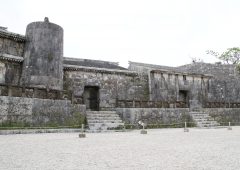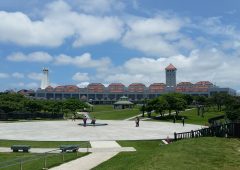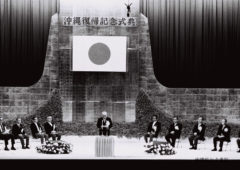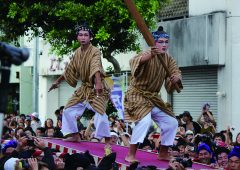2012.12.20
New Prime Minister wants to change Constitution
In a word, the next Prime Minister of Japan is a “Hawk”.
Shinzo Abe, who next week becomes Japan’s seventh Prime Minister in six years, is taking his second spin on the PM machine, first serving as the country’s youngest post-war Prime Minister at age 52 in 2006. Now, Abe says his goal is to restore Japanese foreign policy to a strong footing, and to rename the Self Defense Forces as the National Defense Force.
There’s more to that than a simple name change. Abe wants to change it through a constitutional amendment that would also permit Japan to engage in collective self-defense, a use-of-force issue now prohibited under the government’s traditional interpretation of the pacifist Constitution. Abe wants to rebuild relations with Korea and China, while strengthening Japan.
Abe comes from a family of prominent politicians, including his grandfather, Nobusuke Kishi, a wartime Cabinet member who was detained as a suspected Class-A war criminal following War II, but never prosecuted or even indicted. Kishi eventually became Japan’s Prime Minister. It was the process of learning from his grandfather that he got the idea to fulfill his grandfather’s dream of revising the Constitution. The current Japanese Constitution was created with strong influence from the United States during the post-war Allied Occupation.
National politics brought Abe into the spotlight as deputy chief Cabinet secretary in 2002, and then LDP secretary general a year later. Prime Minister Junichiro Koizumi hand-picked Abe to be his right-hand man, as Chief Cabinet Secretary in 2005, his first senior Cabinet post.
Abe is meeting this week with his junior coalition partner, New Komeito. Natsuo Yamaguchi and Abe are formalizing plans for forming a ruling bloc based on an accord struck following Sunday’s election.


 2024.07.07
2024.07.07 2024.06.21
2024.06.21 2024.05.15
2024.05.15 2024.02.07
2024.02.07 2024.01.31
2024.01.31 2023.11.02
2023.11.02 2023.10.26
2023.10.26 2023.09.29
2023.09.29 2023.09.01
2023.09.01






